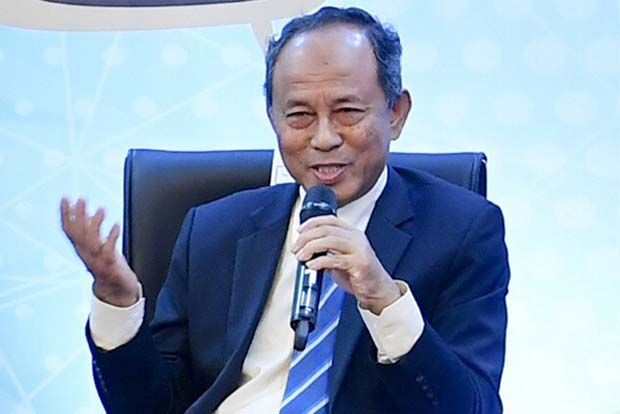Malaysia to focus on core competency of workforce to up prospects – Mida chairman
KUALA LUMPUR: Investment prospects in Malaysia have risen dramatically because of the country’s prolonged economic interaction with the global economy.
“As the Malaysian economy undergoes transformation, we must continue to develop the people’s core competencies so that our workforce can compete effectively in the global economy for the benefit of the country, attracting high-tech investments and transitioning to new sectors of comparative advantage,” said Tan Sri Dr Sulaiman Mahbob, chairman of the Malaysian Investment Development Authority (MIDA).
He said the agency had launched measures to develop a future-ready workforce to meet economic difficulties and to maintain the country’s status as a leading investment destination in the region.
Combining these activities and a skilled labour force will increase international investment prospects, he said.
“We accomplished a great deal last year, setting new highs in approved investments across manufacturing, services, and primary sectors to the tune of RM309.4 billion.
“The investors would come if their investment situate in a clean environment with transparent regulations and if we work together with the government and business sectors to create a hardworking and productive workforce,” he told Bernama.
In order to attract more investments into the country, it is important to have political stability with clear direction coupled with a pool of skilled workforce.
He said the manufacturing sector would benefit from more investment since “the younger workforce is technically capable, and those in the field are keen to expand their abilities.”
Between January and September 2022, Malaysia succeeded in attracting RM193.7 billion worth of approved investments in the manufacturing, services, and primary sectors, involving 2,786 projects.
These projects are expected to create 98,414 job opportunities.
ESG Initiative To Attract Investments In The Digital Economy
“Our economy is open to cross-border investments and our expertise in developing projects is world-class. These factors will contribute to a rapid increase in digital infrastructure,” Sulaiman said.
He added that the government’s strong support for information technology (IT) makes it the preferred destination for tech investors.
Malaysia is an attractive investment location for data centres, especially hyper-scale ones, and the country’s investor-friendly policies are backed by a solid infrastructure and the development of renewable energy. The country has an investor-friendly climate that is conducive to business activities, he said.
The needs of the IT industry are driving growth in several industries, including data centre suppliers and server manufacturers. More resources will be required to support the increasing demand for cloud services.
The IT industry also benefits from government policies that promote the growth of domestic players in data services and ICT services in general.
Sulaiman predicts that the data centre market will expand over the next three years as a result of increased funding options made available to businesses by large corporations.
Businesses are encouraged to invest in the sources of renewable energy and use energy-efficient machinery which includes solar panels, wood-burning stoves, biogas and mini-hydropower plants.
Small and medium-sized enterprises that adhere to sustainable development principles have access to funding, he said.
Future Prospects in Malaysia
Despite global challenges, including inflationary pressures, economic uncertainty, and climate change, Sulaiman said Malaysia’s 2023 economic growth forecast remains positive.
Next year’s gross domestic product (GDP) growth is expected to be between four and five per cent; the government plans to keep fiscal and non-fiscal support high to promote economic activity to maintain the GDP growth momentum.
“We are poised to develop a new paradigm in our investing environment,” he said, drawing on previous lessons and experiences.
He promised that under the New Investment Policy (NIP), which prioritises the development of innovative, high-impact, high-tech investments essential to create high-skilled jobs, MIDA will seek after such investments in order to promote socioeconomic development and trade growth.
“We want to challenge ourselves, put in long hours and develop our style as a group. Malaysia is still the region’s top choice for foreign direct investment,” he said.
Malaysia is a promising market for companies seeking to grow their operations because of its business-friendly administration and connectivity to other countries in the region.
“MIDA strives to guarantee our investors are set up for success before they even come to Malaysia, via means such as fostering the development of businesses and local talent.” – Bernama


 English
English




